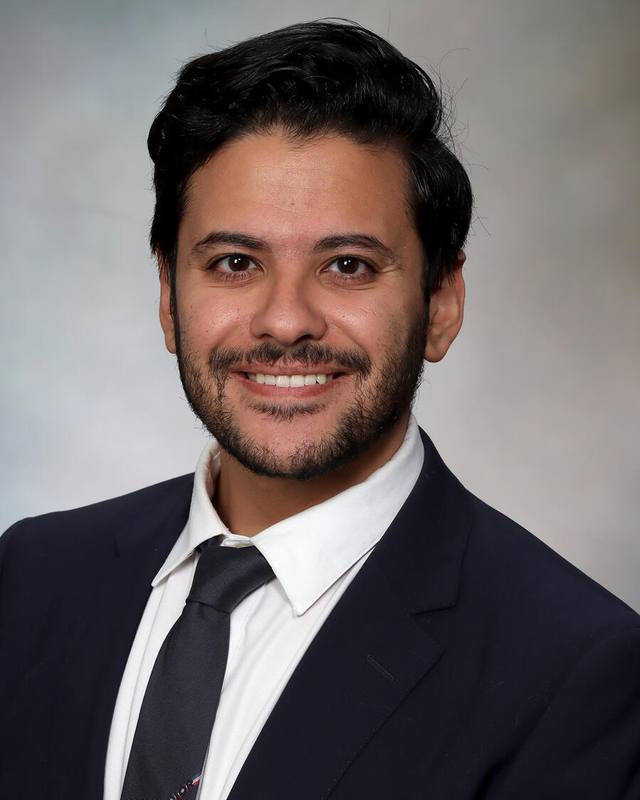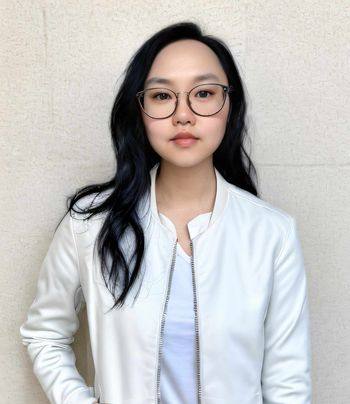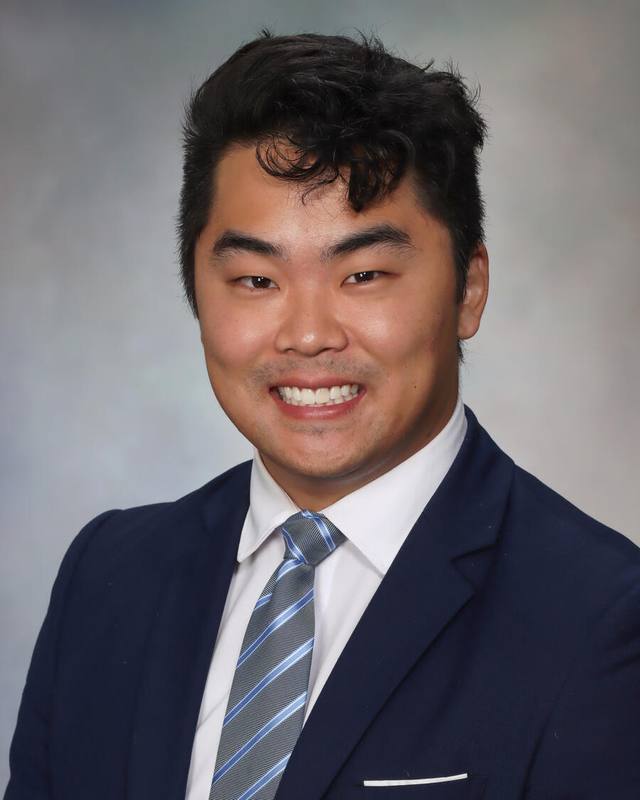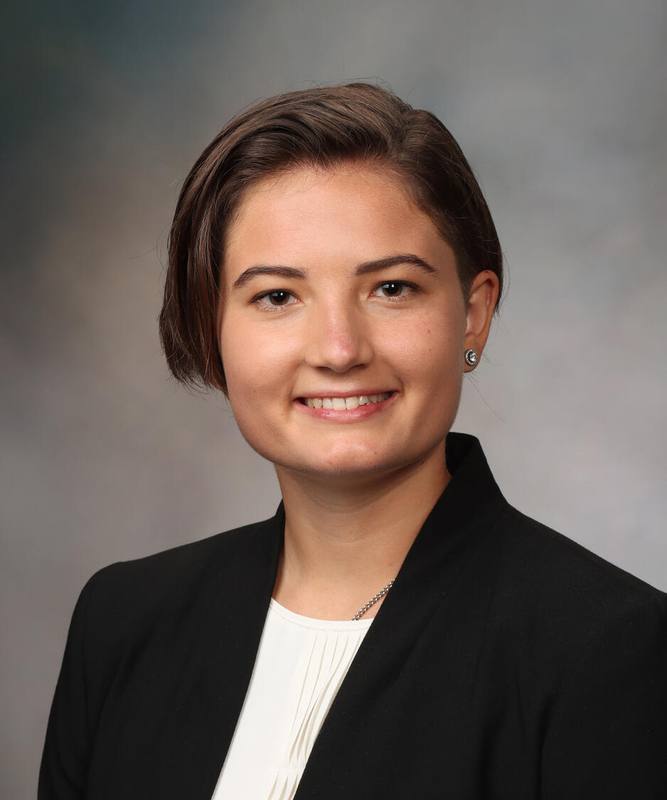-
 Research
ResearchAspiring innovators aim to transform medicine with the next big idea

As a resident in internal medicine, Ramez Barsoom, M.D., is often considering ways to improve healthcare, but inspiration struck one day as he was doing an ordinary household chore. While using tools to mount a TV on the wall, he got an idea for a new medical device to simplify the detection of pneumonia in patients' lungs.

Dr. Barsoom, who came to Mayo Clinic School of Graduate Medical Education last year as an M.D. with a master's degree in engineering, began noodling about developing the device. "I typically keep an innovation journal where I jot down all the different ideas that come to me, " he says. "Periodically, I set aside time to review each idea individually and assess whether the clinical need warrants a solution and hasn't been addressed before."
As a creative problem-solver who’s eager to explore new ideas, Dr. Barsoom is not alone. He is among many trainees at Mayo Clinic who, while learning the craft of their careers, are also strategizing about ways to transform healthcare. Several programs at Mayo are helping these enterprising inventors ask the right questions and take the steps to bring their innovative ideas to market.
Innovating step by step
Dr. Barsoom quickly realized his idea addressed an important medical need. Pneumonia remains a significant health issue worldwide, and diagnosing it often involves X-rays, which may be too costly for communities with few resources.
One of the first challenges he faced was engineering a version of his device. (While the invention is in development, details are unavailable.) He was able to learn the steps involved in device development from the Mayo Clinic Innovation Exchange, a resource that connects inventors with experts from healthcare, engineering and business. Drawing on his engineering background, he worked out a basic design and conducted an initial series of experiments to test the concept.
According to Mary Hedges, M.D., program director for internal medicine residency in Florida, innovation is an essential focus in the training of new physicians. The residency program is among the first in the nation to add a formal innovation curriculum to physician training. "This is the future of medicine," she says. "Our residency aims to provide trainees with exposure to innovation, whether it's just an introduction or more in-depth opportunities for those who intend to make it part of their careers."
Taking the stage to pitch the idea
As Dr. Barsoom's concept moved forward, he applied to pitch it at a competition hosted by the Office of Entrepreneurship: the Alligator Tank in Florida, one of Mayo's healthcare innovation-launching events that occur on each campus. (Inventors on the Rochester campus participate in the Walleye Tank; those in Arizona join the Scorpion Tank.)
The format of the events is similar to the TV show Shark Tank, in which inventors describe new products in under two minutes to a panel of judges. The panel — in this case, a team of Mayo clinicians and innovation experts — asks questions and then votes on a winner.
"Some of the winning ideas from previous years are now products on the market or are in clinical trials," says Charles Bruce, M.B., Ch.B., chief innovation officer in Florida.
Ultimately, Dr. Barsoom's presentation was among several that impressed the judges. He won a cash prize of $2,500. His project also earned a grant from the Mayo Clinic Innovation Exchange, which paired him with an external engineering firm to further develop the device.
"The next steps involve transforming my preliminary bench-tested solution into a minimum viable prototype and ultimately developing clinical trials that are necessary to test it," he says.
Creating tools to make physicians' lives easier
Francis Shue was excited when she realized she might be onto a big idea that could potentially be the basis of a startup company. As a Ph.D. student at Mayo Clinic Graduate School of Biomedical Sciences, Shue studies Alzheimer's disease in the lab of neuroscientist Takahisa Kanekiyo, M.D., Ph.D. Alongside her bench research, her curiosity was piqued by artificial intelligence.
Working with the lab's collaborators at Carnegie Mellon, she began to explore a side project, using AI to organize patients' X-rays and other imaging tests. "My idea started out completely in the research sphere," she says. "We wanted to create something to make physicians' lives easier."

As she explored further, the idea seemed to have potential as a business. To learn how to take her idea to the next level, she signed up for a series of classes offered by the Mayo Clinic Office of Entrepreneurship. The classes introduced her to market and customer research and helped her identify a target audience for the product. The office also helped connect her to executives in industry, whom she interviewed to continue developing her product.
Though she didn't win a prize for her pitch at the Alligator Tank, she is emphatic about the value of the experience and how much she learned along the way. "I was able to get a lot of insider knowledge, hone my business skills and make many wonderful connections," says Shue. She now aims to have a career that involves discovery, innovation and business.

"The Tank events can help fast-track the innovation and the inventor," says Maarten Rotman, Ph.D., Entrepreneurial Education Manager of the Office of Entrepreneurship, who hosts the event and helps participants prepare their pitches. "Most importantly, the students take on a new mindset as they conceive of their approach to developing a product and how to present it."
Internal medicine resident Hiva Lee, M.D., agrees. Opportunities like the Alligator Tank enabled him to develop the idea for a device that aims to reduce in-hospital infections.
"There are inevitably bumps along the road when developing a product," he says. "I’m in the middle of one now, as I’m trying to navigate the many paths to funding, research and development—so stay tuned!"
A new device to study cancer

Alex Bechtle was able to jump right in as an inventor thanks to opportunities at Mayo. A few years ago, while still an undergraduate majoring in biomedical engineering, she spent a few summers studying brain cancer in the labs of neurosurgeons Alfredo Quinones-Hinojosa, M.D. and Kaisorn Chaichana, M.D. The research teams became interested in using a 3-D printer to develop a new tool to visualize the unique attributes of metastasizing brain cancer cells. Using concepts from her undergraduate classes, Bechtle designed and developed the prototype, which the researchers immediately put to use.
Now a third-year student at Mayo Clinic Alix School of Medicine, Bechtle found additional opportunities to develop the skills inventors need. She fine-tuned a presentation about the 3-D printed device and first pitched it at the Alligator Tank in 2019. With new developments, she pitched it again in 2020, winning the crowd favorite award from the audience. Amid her medical school classes, she also took part in a week-long biomedical innovation "selective," one of the medical school's unique training courses on a specialized topic.
Though she is exploring making the code for the 3-D printed device freely available to researchers, Bechtle says the opportunities to learn about innovation throughout her training have made her even more alert to new ideas. "I do have the perspective of how can we improve a system or how can we improve a tool — and also that it’s essential to connect with others to discuss ideas and find ways to innovate," she says.







